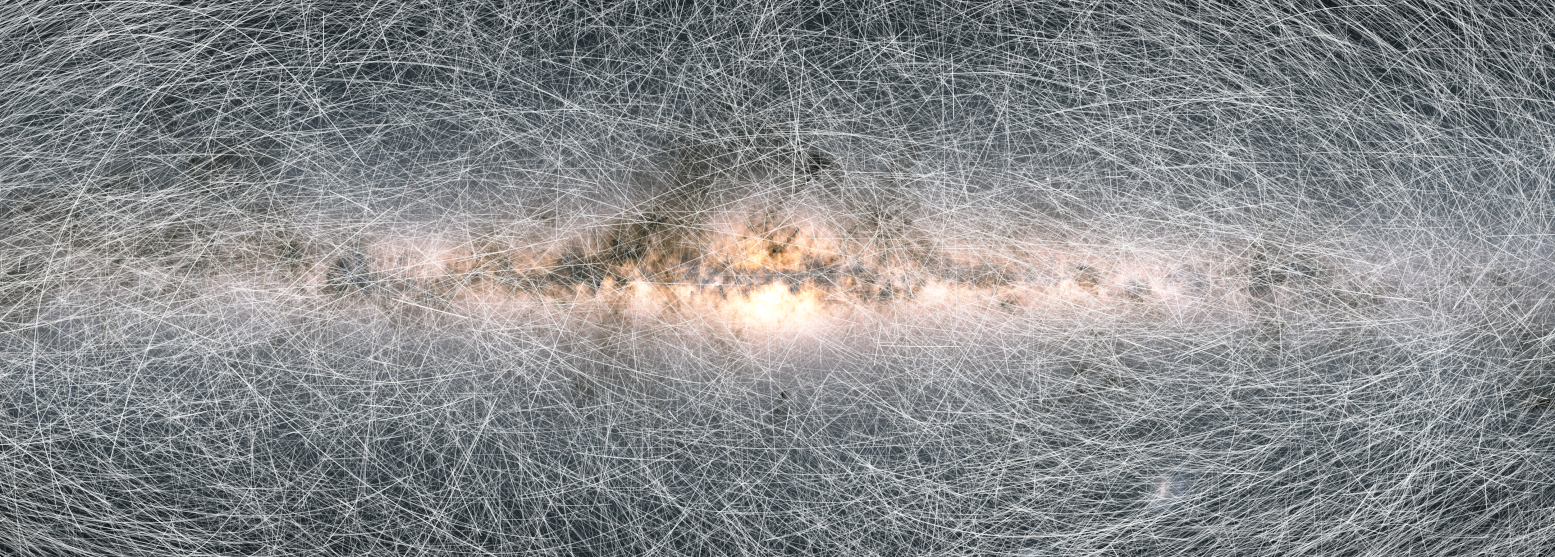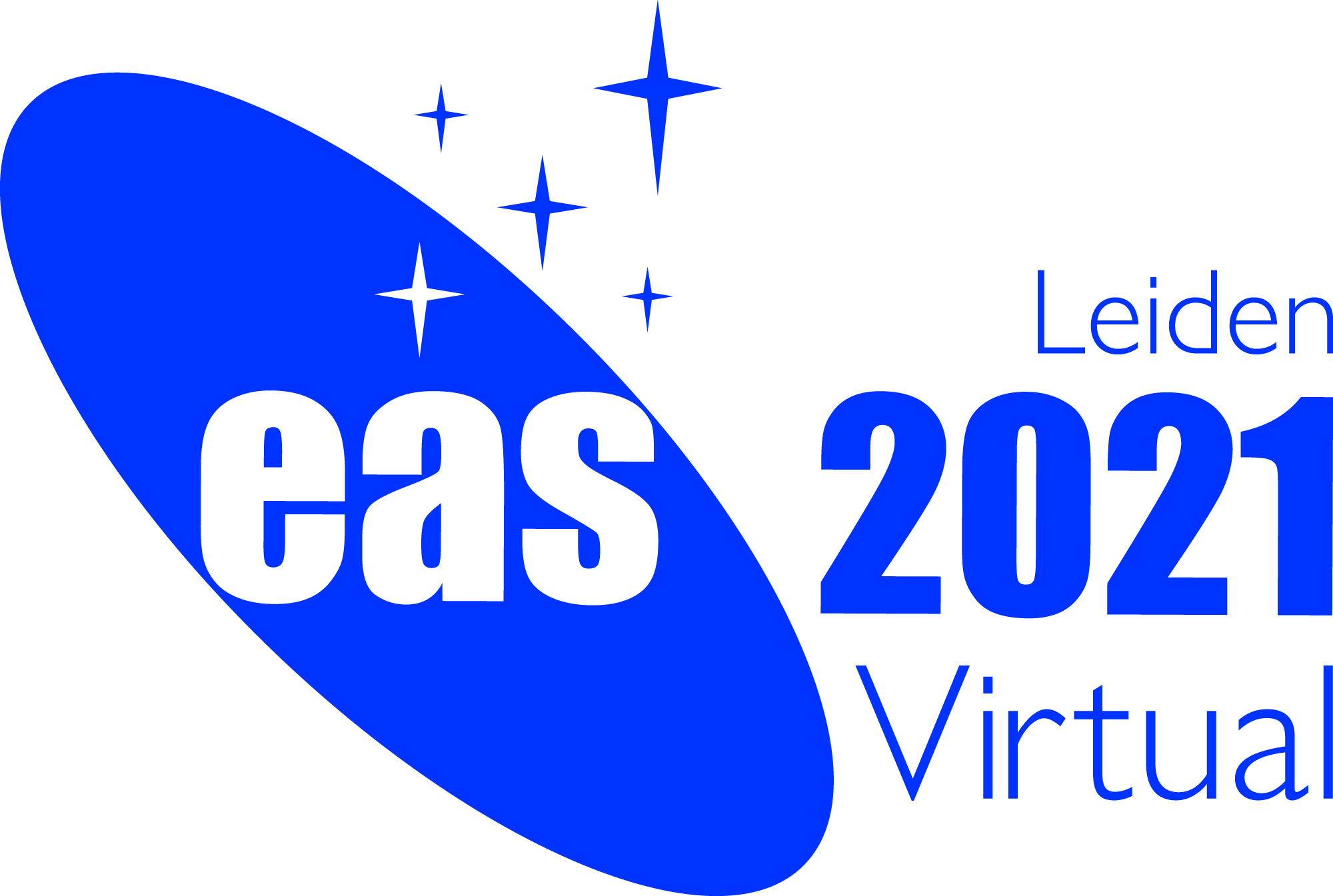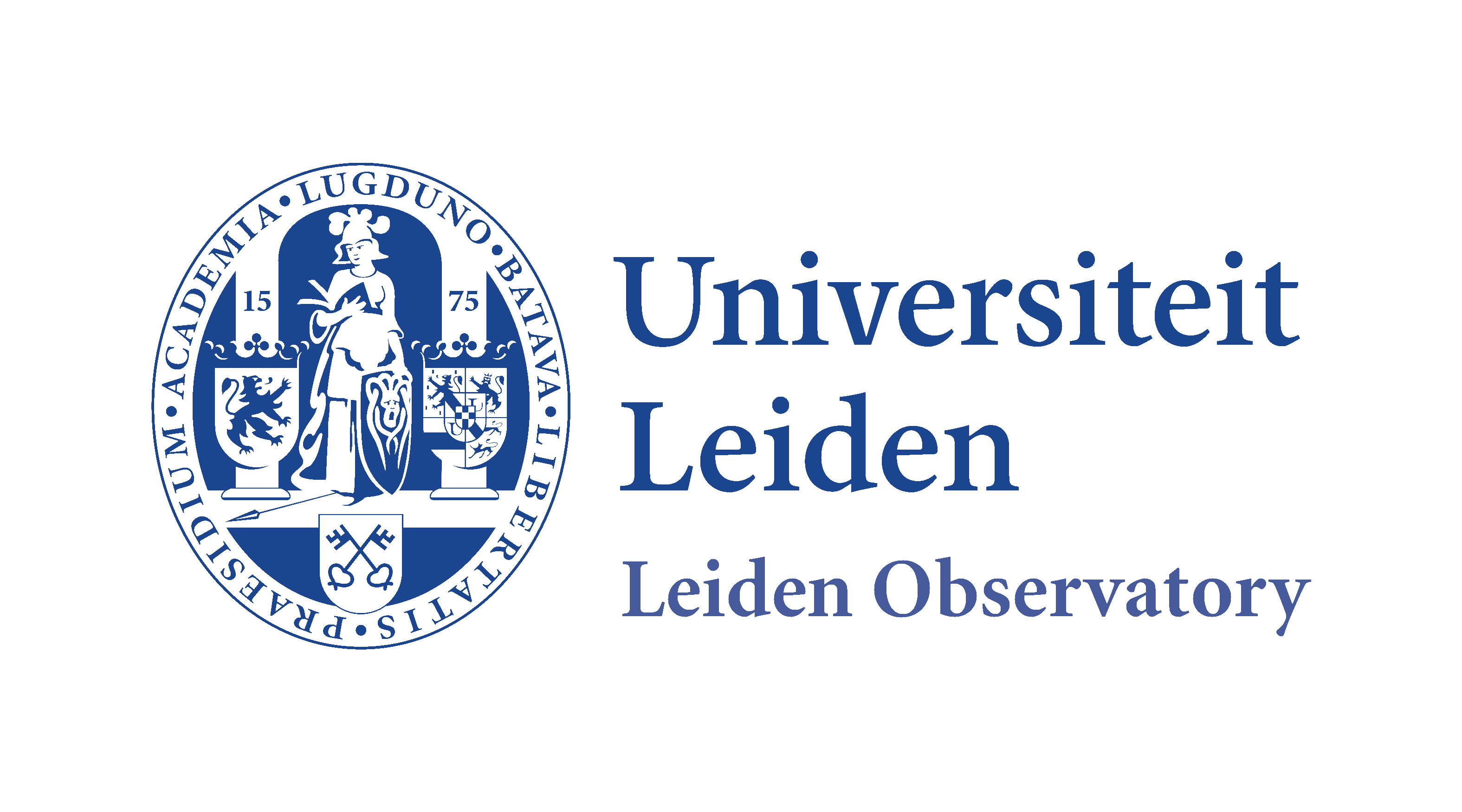Symposium S15
28-29 June 2021
Gaia: The (TWO) Billion Star Galaxy Census: The Science of EDR3 and the promise of DR3

News:
- 20210115 Session Information updated.
Aims and scope
The updated ESA Gaia Billion Star Census of the Milky Way, was released 3
December 2020 as the Gaia Early Data Release 3 (Gaia EDR3). This release updates
and extends Gaia DR2, and contains full five parameter astrometry for ~1.5
billion sources, along with a wealth of associated data (such as magnitudes,
colours, mean radial velocities for brighter objects - see
https://www.cosmos.esa.int/web/gaia/earlydr3 for details). This
marks a further major milestone in the Gaia mission, following on from the Gaia
Data Release 2 (Gaia DR2) in April 2018. Gaia is revolutionising our
understanding of the formation history of the Milky Way, and is having a
significant impact on many other areas of astronomy ranging from solar system
science to quasars.
The key goals of this symposium will be for the Gaia/GREAT and related
communities (and especially early stage researchers) to present and discuss
their science highlights resulting from Gaia EDR3 and in anticipation of the
Gaia DR3. It will allow the Gaia project to update the science community with
the latest scientific and technical performance of Gaia, looking ahead to the
release of Gaia DR3.
In addition there will be a lunchtime session, providing
demonstrations of the advanced ways in which the Gaia data can be accessed
through the Gaia Data Archive.
GREAT (an initiative of the ESA Gaia Project, Gaia Science Team and Data
Processing and Analysis Consortium (DPAC) Executive) is a pan-European research
network involving over 1000 researchers in 20+ countries with a common interest
in maximising the science potential of Gaia (http://www.great-esf.eu). GREAT, in
the form of the MW-Gaia COST Action (https://www.cost.eu/actions/CA18104) is
currently financially supporting networking activities across Europe.
GREAT plenary meetings have run since 2009, allowing members of the GREAT and
wider community to participate in a dynamic fashion. They are structured around
Gaia updates, presentations from related organisations (e.g. ESO), reports from
new initiatives, and new science results from the network activities.
This will be the 14th GREAT plenary (which since 2012 have been organised within
the high impact EAS EWASS - see the links to online materials at
http://great.ast.cam.ac.uk/Greatwiki/GreatHome for the Gaia/ GREAT symposia held
at the EWASS's in Rome (S5), Turku (S11, SM5), Geneva (S3), La Laguna (S9),
Athens (S1), Prague (S2), Liverpool (S2), Lyon (SS28) and Leiden (S10)).
Programme
- Gaia EDR3: Highlight Science
- Gaia / GREAT/MW-Gaia / Gaia Unlimited Status
- Gaia EDR3: Highlight Science (The Milky Way as a Galaxy)
- Gaia EDR3: Highlight Science (The Birth, Life and Death of Stars)
- Gaia EDR3: Highlight Science (from Solar system to reference frames)
- Gaia networking and ground based synergies with Gaia
- Lunch session with an update on the Gaia Archive and also an opportunity for
poster presenters to deliver a 'lightening' talk of their (e-)poster.
Invited speakers
The speakers and programme will be available at the meeting website - see http://great.ast.cam.ac.uk/Greatwiki/GreatMeet-PM14
Session 1 will include a headline talk from Alis Deason (University of Durham, UK)
Session 2 will include Gaia status update talks from Timo Prusti (Gaia), Anthony Brown and Antonella Vallenari (DPAC), Nic Walton (MW-Gaia)
All other session talks will be contributed presentations.
Scientific organisers
The co-Chairs are Nicholas Walton (Institute of Astronomy, University of Cambridge, UK), Anthony Brown (Leiden Observatory, Leiden University, NL), and Timo Prusti (ESTEC, ESA).
The organising committee consists of the members of the Gaia Science Team and the DPAC Executive: Carine Babusiaux (Grenoble, FR), Michael Biermann (Heidelberg, DE), Anthony
Brown (Leiden, NL), Orlagh Creevey (Nice, FR), Christine Ducorant (Bordeaux,
FR), Dafydd Wyn Evans (Cambridge, UK), Laurent Eyer (Geneva, CH), Alex Hutton
(ESAC, ESA, ES), Carme Jordi (Barcelona, ES), Lennart Lindegren (Lund, SE),
Xavier Luri (Barcelona, ES), Sergei Klioner (Dresden, DE), Francois Mignard
(Nice, FR), Chantal Panem (Toulouse, FR), Dimitri Pourbaix (Brussels, BE), Timo
Prusti (ESTEC, ESA, NL), Sofia Randich (INAF-Arcetri, IT), Paola Sartoretti
(Paris, FR), Caroline Soubiran (Bordeaux, FR), Paolo Tanga (Nice, FR), Antonella
Vallenari (Padua, IT), Nicholas Walton (Cambridge, UK)
Contact
Nicholas Walton (naw at ast.cam.ac.uk)
Updated on Sun Jan 16 17:55:47 CET 2022
|

 A power cut will shut down all EAS services on Tuesday, 10 January 2017 starting at 7:30 CET.
A power cut will shut down all EAS services on Tuesday, 10 January 2017 starting at 7:30 CET.


